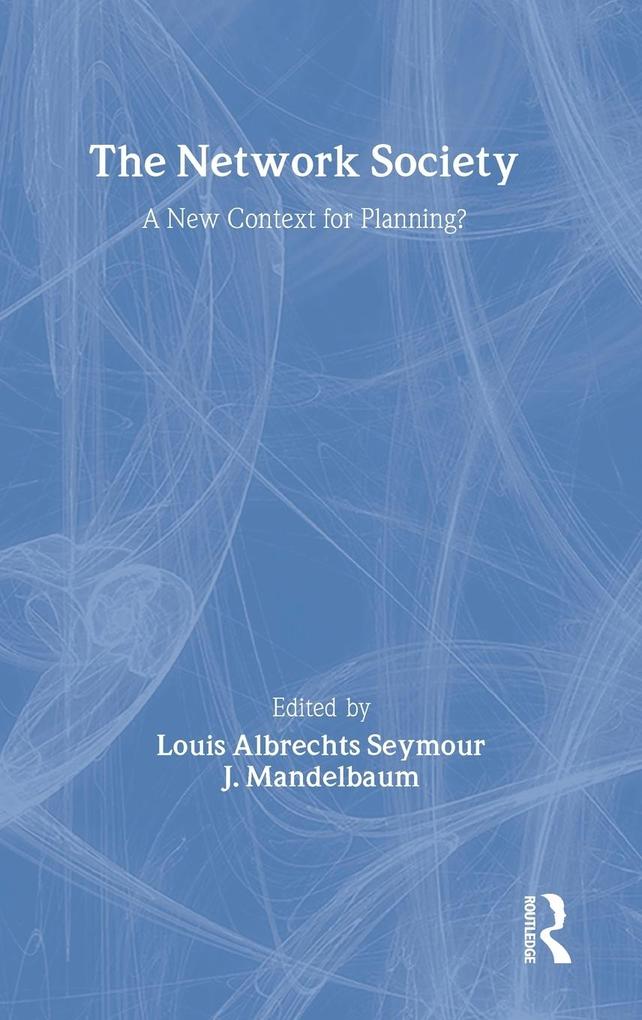
Zustellung: Di, 22.07. - Sa, 26.07.
Versand in 2 Wochen
VersandkostenfreiBestellen & in Filiale abholen:
Essential reading for graduate level courses in urban studies, city and regional planning, and urban design, Albrecht and Mandelbaum's text examines the challenges that the new paradigm of the Network Society create for Urban and Regional Planning.
In a clear and rewarding style, Albrechts and Mandelbaum consider the challenges that the new paradigm of the Network Society creates for Urban and Regional Planning. Chapters grouped into five themes discuss theoretical and practical perspectives on the contemporary organization of social, economic, cultural, political and physical spaces. These sections are:
- models of the Network Society
- the impact of physical networks such as transport
- challenges for Planners raised by society's increased reliance on new technology
- an examination of local networks including community networks and the possibilities of setting up local networks for disaster recovery
- a comparison of spatial and policy networks and an exploration of the institutions involved.
This book is essential reading for graduate level courses in urban studies, city and regional planning, and urban design. With its clear structure - unitary sections but a diversity of perspectives - the book can be used easily in courses such as Planning Theory, Urban Infrastructure and Public Policy.
Inhaltsverzeichnis
Introduction: A New Context for Planning? Part 1: The Network Society: A New Paradigm? 1.1 Communicative Action and the Network Society 1.2 Planning and the Network City 1.3 Escaping the Prison of "the Present Place" 1.4 The Discourse Network Part 2: Organization of Space and Time 2.1 Impact of Physical Networks 2.2 Organization of Space and Time: Challenges for Planning and Planners Part 3: Policy Networks and Governance 3.1 Local Networks and Capital Building 3.2 Governance Capacity, Policy Networks, and Territorial Specificities
Produktdetails
Erscheinungsdatum
11. November 2005
Sprache
englisch
Seitenanzahl
366
Herausgegeben von
Louis Albrechts, Seymour Mandelbaum
Verlag/Hersteller
Produktart
gebunden
Gewicht
689 g
Größe (L/B/H)
242/162/25 mm
ISBN
9780415701501
Entdecken Sie mehr
Pressestimmen
"Albrechts and Mandelbaum present 18 papers,along with occasional commentaries, that take different positions on the question of whether the concept of "network society" (associated with the work of Manuel Castells) should be considered a new context for planning. The papers are organized into sections broadly concerned with the impact of physical networks; challenges for planning and planners inthe organization of space and time; local networks and capital building;and governance capacity, policy networks, and territorial specificities." --Reference & Research Book News
Bewertungen
0 Bewertungen
Es wurden noch keine Bewertungen abgegeben. Schreiben Sie die erste Bewertung zu "The Network Society" und helfen Sie damit anderen bei der Kaufentscheidung.










